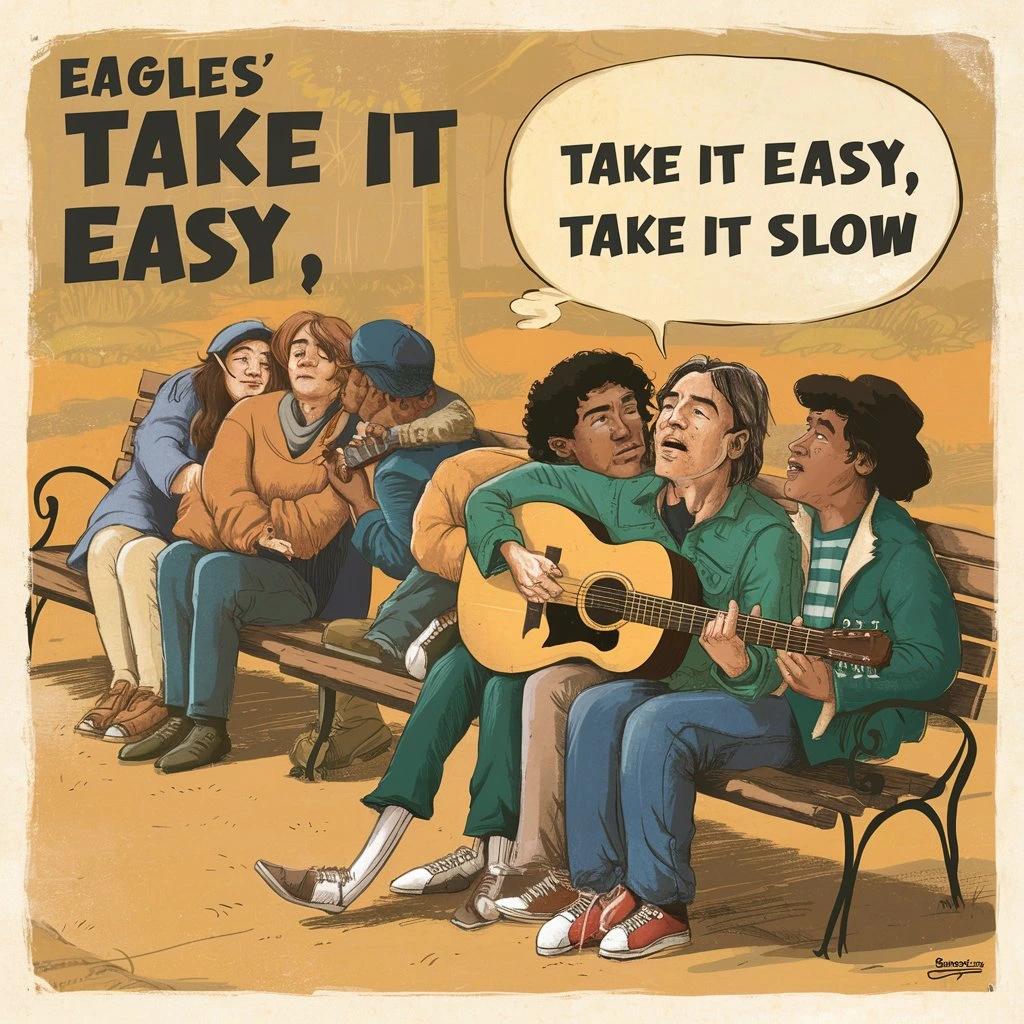Introduction
phrase “take it easy” is one of the most common expressions in English, used in movies, everyday talk, workplaces, and texts. While it may seem simple, the meaning of “take it easy” varies by situation — sometimes it’s a farewell, other times it’s a way of telling someone to relax or not to worry.
In this article, you’ll learn the true “take it easy” meaning, its different uses, and 17+ polite, professional, and casual alternatives. You’ll also find texting examples and tone-based tips to help you choose the perfect phrase.
What Does “Take It Easy” Mean? (Take It Easy Meaning Explained)
The phrase “take it easy” means relax, calm down, or don’t stress. It can also serve as an informal goodbye or a friendly piece of advice.
The most common meanings of “take it easy”:
- Relax or don’t stress out – Encouragement to stay calm.
- Goodbye or farewell – Used when parting ways.
- Don’t overdo it – Advice to rest or slow down.
- Be laid-back – Suggesting a chill attitude.
The take it easy meaning depends on tone and setting. In a conversation, it can sound warm and comforting (“Don’t worry, take it easy”) or light and friendly (“See you later—take it easy!”).
Why Look for Alternatives to “Take It Easy”?
While the meaning of “take it easy” is friendly and simple, you may want alternatives when:
- Writing a formal message (it can sound too casual).
- Avoiding repetition in professional writing.
- Adjusting tone to be more empathetic or polite.
- Adding variety in your digital conversations.
That’s why exploring phrases with similar meaning to “take it easy” helps you express yourself more effectively.
17+ Alternatives to “Take It Easy” (With Meaning and Examples)
Each option below offers a new way to express the “take it easy” meaning — complete with examples and tone notes.
1. Relax and Unwind
Tone: Supportive, casual
Example:
“Work’s been hectic for you lately. Don’t forget to relax and unwind tonight.”
2. Don’t Stress Yourself
Tone: Gentle, reassuring
Example:
“You’ve prepared well. Try not to worry—don’t stress yourself.”
3. Stay Calm (Professional Alternative to Take It Easy)
Tone: Neutral, formal
Example:
“The client may ask tough questions, but just stay calm and answer confidently.”
4. Rest Well (Similar to Take It Easy)
Tone: Warm, polite
Example:
“You’ve worked hard today, Leo. Rest well and recharge.”
5. No Need to Worry
Tone: Supportive
Example:
“No need to worry about the report—I’ve already sent it.”
6. Keep It Light (Casual Version of Take It Easy)
Tone: Playful, friendly
Example:
“It’s just a game, let’s keep it light and fun.”
7. Don’t Push Yourself Too Hard
Tone: Caring, professional
Example:
“I know you want to finish early, but don’t push yourself too hard.”
8. Take a Break (Take It Easy Synonym for Work Settings)
Tone: Neutral, practical
Example:
“You’ve been working all morning—take a break and grab some coffee.”
9. Calm Down (Direct Take It Easy Alternative)
Tone: Firm, straightforward
Example:
“I understand you’re upset, but let’s calm down and talk.”
10. Get Some Rest (Polite Way to Say Take It Easy)
Tone: Gentle, kind
Example:
“You sound tired. Please get some rest before tomorrow.”
11. Take Care (Polite Farewell Similar to Take It Easy)
Tone: Warm, semi-formal
Example:
“It was great catching up today. Take care, Leo.”
12. Don’t Worry About It
Tone: Casual, comforting
Example:
“You forgot the file? Don’t worry about it, I’ve handled it.”
13. Go Easy (Relaxed Take It Easy Meaning)
Tone: Light, humorous
Example:
“It’s just a friendly match—go easy on me!”
14. Have a Relaxing Day (Friendly Take It Easy Alternative)
Tone: Cheerful, kind
Example:
“Hope your weekend is peaceful. Have a relaxing day!”
15. Stay Relaxed (Encouraging Take It Easy Synonym)
Tone: Positive, calm
Example:
“You’ve got this, Leo. Stay relaxed and do your best.”
16. Don’t Overdo It
Tone: Practical, caring
Example:
“Remember to pace yourself—don’t overdo it today.”
17. Keep Cool (Trendy Take It Easy Expression)
Tone: Confident, friendly
Example:
“The meeting may get tense, but let’s keep cool.”
18. Take Things Slowly (Bonus Alternative for Take It Easy Meaning)
Tone: Thoughtful, patient
Example:
“You don’t need to rush decisions—take things slowly.”
11 Texting Examples Using Take It Easy Alternatives
Here’s how you can use these “take it easy” meaning alternatives in real-life messages 👇
- “Long week for you! Make sure to relax and unwind tonight 😊.”
- “Good luck tomorrow—stay calm, you’ll do amazing!”
- “Don’t stress yourself, I’ve handled it.”
- “Glad we caught up! Take care and talk soon.”
- “You’ve been working hard—don’t push yourself too hard.”
- “Goodnight! Rest well and sleep tight.”
- “Missed your call earlier—no need to worry, I’ll text soon.”
- “Weekend mode on! Let’s keep it light and fun 🎉.”
- “You sound tired—get some rest before tomorrow.”
- “Don’t overdo it at the gym today 😅.”
- “Big day ahead—stay relaxed and confident!”
How to Choose the Right Take It Easy Alternative
When picking the right take it easy meaning alternative, consider:
- Tone: Formal vs. casual.
- Relationship: Colleague, friend, or partner.
- Timing: If it’s late, use “rest well”; for farewells, use “take care.”
Choosing the right phrase keeps your communication clear and natural.
Final Thoughts on Take It Easy Meaning
The phrase “take it easy” may seem simple, but its meaning reflects friendliness, warmth, and calmness. Whether you’re telling someone to relax or saying goodbye, this expression is one of English’s most versatile phrases.
By learning 17+ alternatives to “take it easy”, you can make your communication more polished, empathetic, and engaging. The next time you text, email, or chat, choose the variation that best fits the moment — and you’ll sound effortlessly natural.





